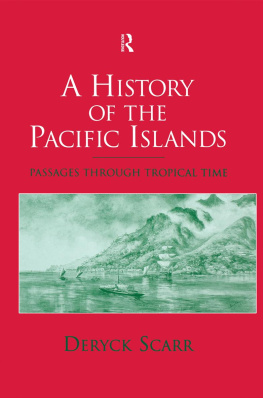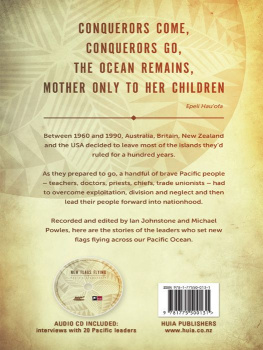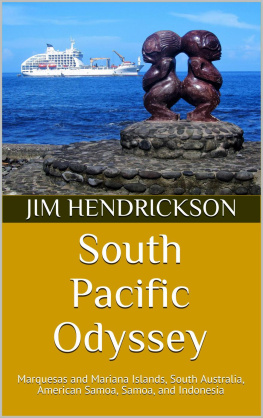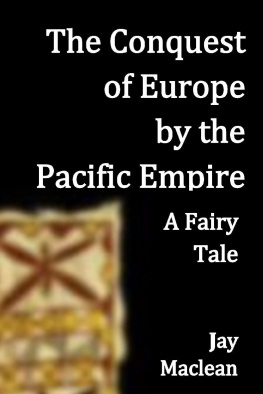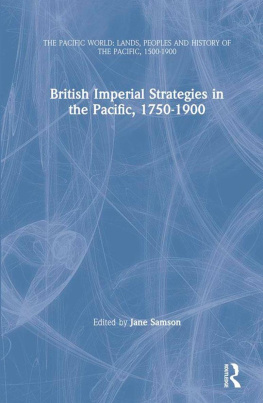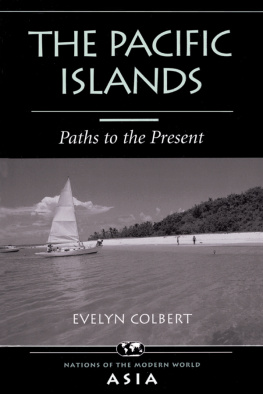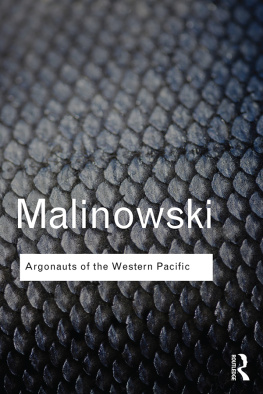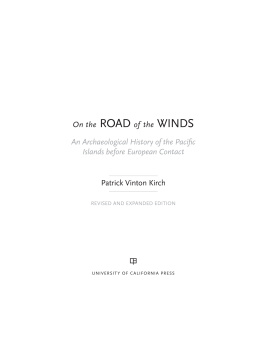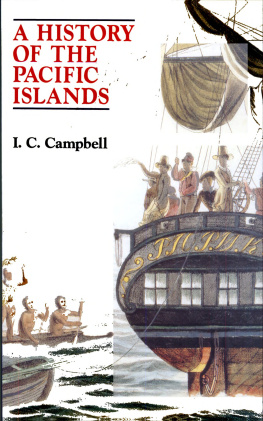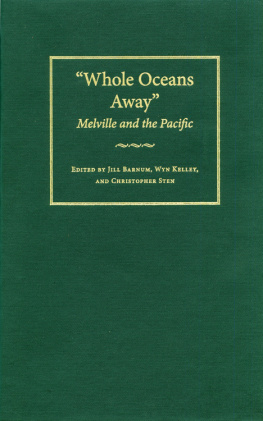ACKNOWLEDGEMENTS
This book is an expanded version of the Macmillan Brown Lectures for 1982 given at the University of Auckland on 8, 15, and 22 September.
Much of the earlier reading was done during the tenure of a research fellowship in the Research School of Pacific Studies at the Australian National University. There are many concealed debts to colleagues, then or since, in the Department of Pacific and South-East Asian History, notably the late J.W. Davidson, H.E. Maude, Gavan Daws, Niel Gunson, R.M. Langdon, and Dorothy Shineberg. Others whose expertise outside my field has helped are Peter Bellwood, Ross Clark, Jack Golson, Jacques Guy, A.B. Hooper, Hugh Laracy, and Nigel Wace.
For sharing with me his knowledge of Benjamin Morrell I am especially grateful to Henry Stommel of Woods Hole Oceanographic Institution, Massachusetts. Joe Atkinson arranged a copy of a thesis otherwise difficult to obtain. Keith and Judith Sorrenson transcribed from a source at the time inaccessible to me.
To the staff of these libraries I have been indebted: the Mitchell Library and Dixson Collection, State Library of New South Wales; the National Library of Australia; the Australian National University Library; the British Library; New York Public Library; the G.W. Blunt White Library at Mystic, Connecticut; the Essex Institute, Salem, Massachusetts; the Boston Public Library; the Widener Library at Harvard University; the libraries of Brown University, the University of Pennsylvania, and the University of Hawaii.
1
FALL FROM GRACE
It is an honour to contribute to this series of annual lectures to commemorate the first professor of English at my alma mater, the old Canterbury University College. John Macmillan Brown has several claims on our interest. He was the father of Millicent Baxter, father-in-law of Archibald Baxter, both of whose memoirs have enriched our literature. And he was grandfather to the poet James K. Baxter who once gave the Macmillan Brown lectures himself, and was a friend of and formative influence on the contemporary Pacific writer, Albert Wendt.
Macmillan Brown was professor of English, history, and political economy, and after his retirement in 1895 took an increasing interest in the Pacific. Among his several Pacific works there are two novels, a utopia called Limanora and a satirical account of an imaginary island called Riallaro. But the genre of the imaginary voyage is one I am excluding from my talks because I am concerned with the reactions of Europeans to the actual people of the Pacific islands, to their behaviour and their cultures, which were so often misunderstood by the early visitors, or treated as illustrations of European preoccupations.
Macmillan Browns wide-ranging example is appropriate because though I am concerned with literary responses to the Pacific islands, and have read far more imaginative writing than I can mention, I have to recognize that much of it is of slight literary value, and that it has to be considered in its historical context, and that its meaning relates more to the history of European ideas and attitudes than to literature. Because we have to understand these ideas and attitudes as they were actually stated, I hope that Pacific islands people who are present will not be offended at some of the things that have been said. If I feel that I have to quote them, I dont share them.
The period that is seminal is from 1767, when Europe and Tahiti made first reported contact, to the mid-nineteenth century, and much of my first two lectures will be concerned with this time. Much of that literature is mediated and vicarious. In my third lecture I will discuss the writing of those who drew on their own experience of the Pacific, and though I will not be able to discuss it fully or closely I will touch on the recent vigorous literature in English by Pacific island-born writers, whose view of their experience has been a measure of lifelikeness throughout the writing of the lectures.
I begin with one cultural institution whose licentiousness shocked Europe, not because, to many, it seemed to demand the vengeance of Heaven; I do so because it involved dramatic performances. This was the privileged sect in Tahiti called the arioi, ostensibly a set of strolling players, to which so many predominantly upper class young men and a smaller number of women belonged, whose main public activity when they went on circuit was dramatic performance and dancing. There were troupes of players in the Leeward group when Cook made two visits in 1773 and 1774, on his second voyage to the Pacific. They gave a number of performances and we have impressions of them from several of the ships company.
There was one piece recorded by the German botanist Johann Reinhold Forster. This is its plot. A father wont let his daughter marry but her lover persuades her to run away with him. She is seen on the acting area in labour and gives birth to a son so vigorous that he is played by an adult. He runs about the area with placenta and cord still attached while the midwife tries to catch him. The father, impressed with his grandsons cleverness, is reconciled to his son-in-law.
Another plot must have been popular: it was acted in Huahine, Tahaa and Raiatea, as well as Tahiti. It showed some thieves dexterously stealing property in the keeping of sleeping servants. There were variants of this plot; sometimes the thieves were detected, sometimes not. In the version that Cook saw at Raiatea, the thieves were discovered but put up a fight and got away. Cook, troubled by repeated thefts wherever he went, watched this play very closely. I was very attentive to the whole of this part in expectation that it would have had a quite different end, for I had understood that the Theift was to be punished with death or with a good (beating) but I found my self misstaken in both.
There is a topical piece on which we have several comments. William Wales, the astronomer, describes it and Johann Reinhold Forster moralizes on it. It was performed at Huahine and concerned a girl who in actuality was in the audience. She came from Porapora and had eloped from there to Tahiti with a young chief, an arioi, who then neglected her. She
I opened with these samples of drama of Polynesians about themselves, partly because the zest and the ridicule look forward to recent Polynesian writing in English, and because I dont find it difficult to visualize similar skits being extemporized and enjoyed by Polynesians I know it is an aspect of Polynesian behaviour that came to be forgotten by Europeans who concerned themselves with their welfare. But I raised them also because the incident reveals the European compulsion to look for a moral, and in Johann Reinhold Forsters case to expound a complex pattern of moralizing which illustrates, in his mind, a commendable and fashionable sensibility in the islanders. If one were to draw his meaning out a little more finely, they were people with minds rather like his own, and the portrait is to some extent a self-portrait.
It was Tahiti or the Society Islands as a whole that made the first benign impact on Europe. If at first it is Tahiti I concentrate on, it is because that was what Europe was most interested in. Reading the accounts of the early visitors, even sceptically, it is fairly plain that Tahitian life at the time of European contact was pleasant in time of At the same time it is apparent, in the light of what has been learned subsequently about ancient Tahi-tian society, that the terms in which Europe judged it, and by which it came to destroy it, were inadequate to understanding it in the way that Tahitians must have understood themselves.
Let us briefly rehearse these early visits and reports. It was the English captain Samuel Wallis who first visited Tahiti, in 1767. There was resistance to English attempts to land, and Walliss ship was attacked; eventually the English destroyed the Tahitian fleet and the people were shocked at the unfamiliar destructive power of English weapons. Thereafter for several weeks there were amicable relations in which sailors took pleasure in the sexual freedom allowed to girls between puberty and marriage, and Tahitians on their side sought the new material iron. A district chiefs wife, Purea, for purposes not apparent, cultivated the friendship of the English and wept copiously at their departure. Such weeping can be seen from other instances to be a ceremonial honour awarded to guests who were welcome. Nine months later the French captain Louis Antoine de Bougainville called, unaware of the English visit, and, though he found his welcome uncertain, since he was not allowed to land except by day or to stay as long as he first asked, his crew were generously entertained by the young girls, and he was intrigued and moved to rhapsodic prose by the absence of shame or secrecy in their embraces. He composed a pastoral idyll, using the metaphor of the isle of Cythera, home of Venus, every inhabitant a servant of love; and saw Tahitians as living in the Golden Age, without war, or private property. Their bread grew on trees; they lived an enviably simple life on a frugal diet of fruit and fish and coconut milk. It was an attractive portrait, one that flattered its readers, as well as its author.








